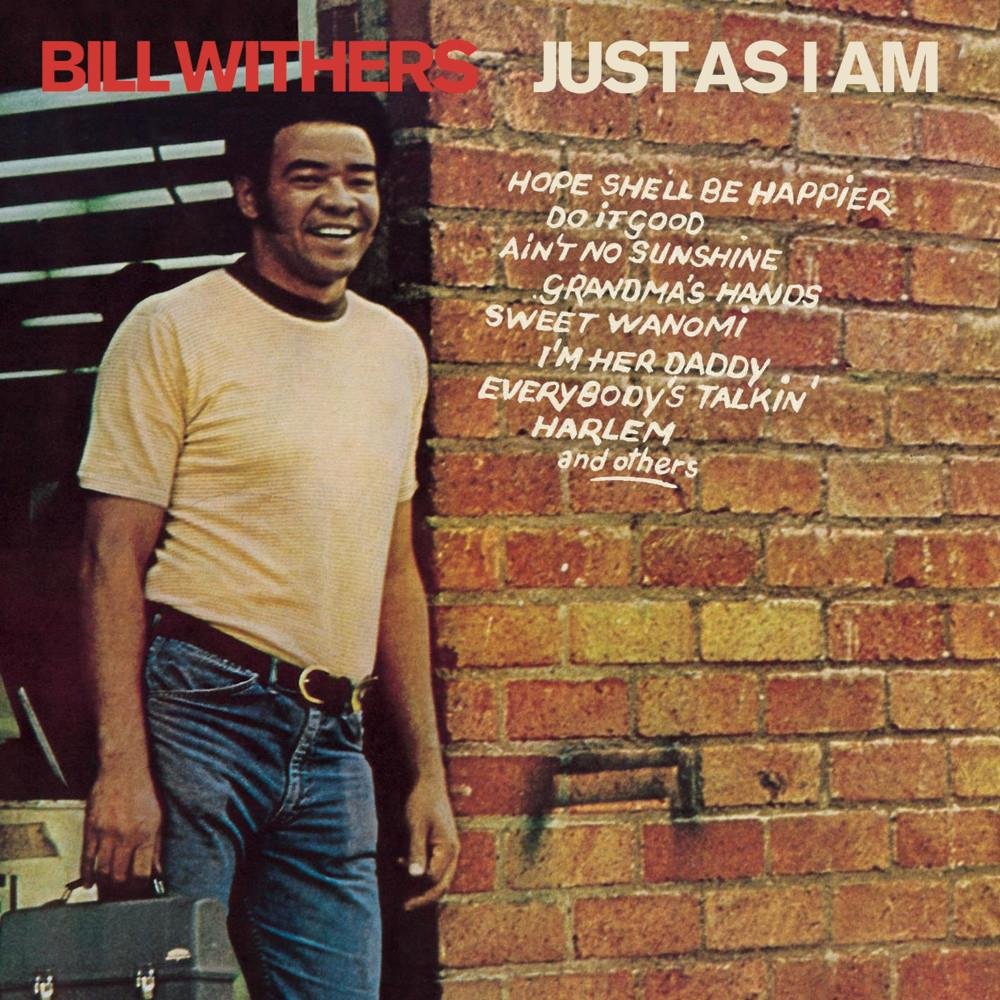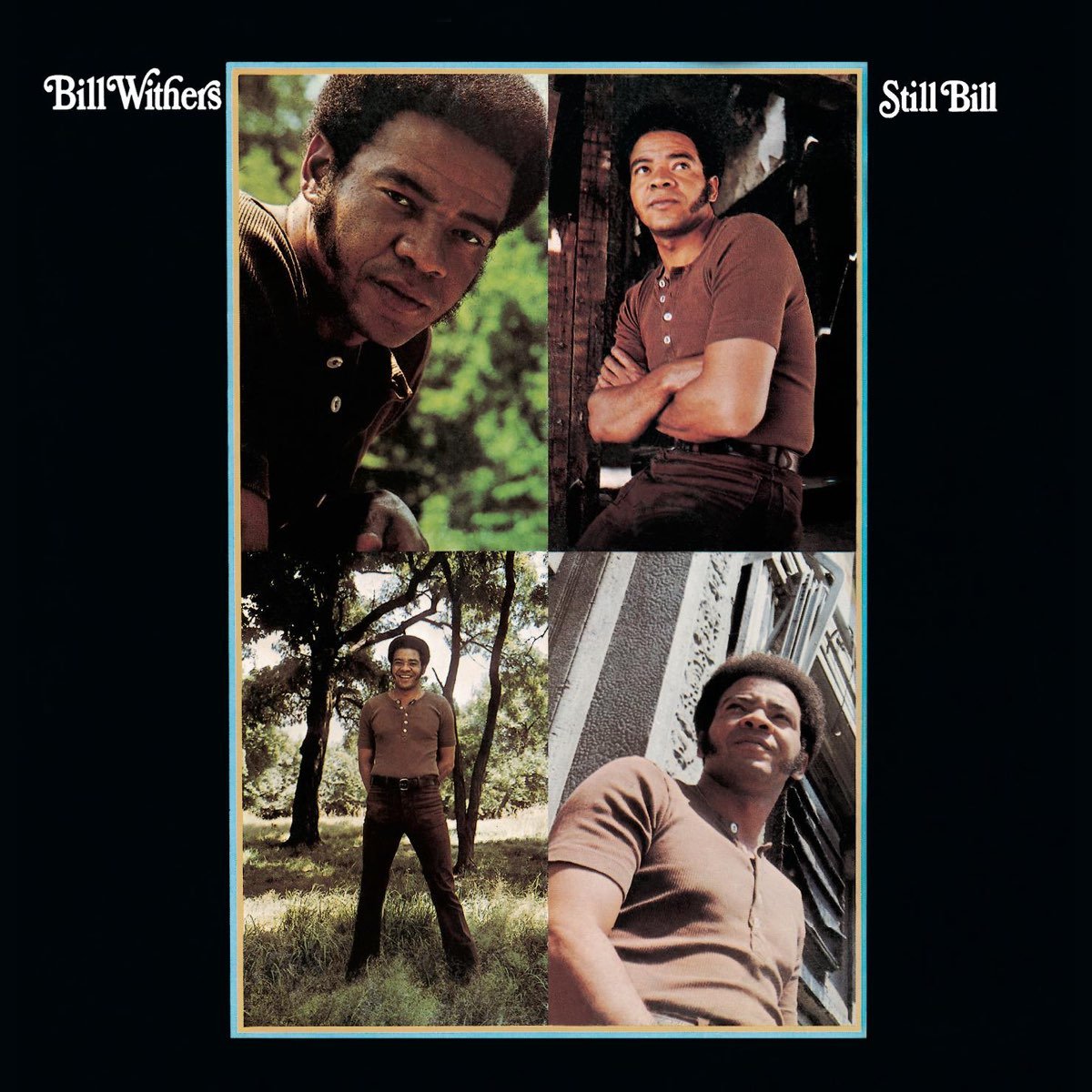Happy 50th Anniversary to Bill Withers’ Live at Carnegie Hall, originally released April 21, 1973.
Friday October 6, 1972 was a particularly miserable autumn day in New York—a world away from the jazz standard written by Vernon Duke and sung, so memorably, by many a jazz legend. Not so much inviting, as wet, windy and bereft of “gleaming rooftops at sundown.” The weather itself could have been said to reflect the national mood at that time too: a nation wallowing in the mire of the Vietnam War, a nation still divided by race despite the herculean efforts of the now assassinated Martin Luther King and Malcolm X, and a nation beset by a panoply of social ills.
Presented with such overwhelmingly depressive times, you could be forgiven for thinking it was impossible to find your way around the labyrinthine mess the world was in. Yet Toni Morrison, writing in the 150th Anniversary edition of The Nation in 2015, explained how artists behave as society’s resistance during these times of turbulence and impending dread. “This is precisely the time that artists go to work," Morrison reflects. "There is no time for despair, no place for self-pity, no need for silence, no room for fear. We speak, we write, we do language. That is how civilizations heal.”
All of which brings us back to that fateful night in a damp and dismal New York City when Bill Withers and his band performed the roles of comforters, speakers of truths and storytellers supreme. Six people stood on the stage at Carnegie Hall and filled it with such warmth, humanity and hope that the world outside shrank and disappeared from collective view for the duration of the concert.
But how would I know? I wasn’t even born until 1975 and it was many years before I embraced Bill Withers’ bountiful back catalogue. The documenting of the concert (released on April 21, 1973) is that most elusive of musical achievements: a live album that delivers on every level. It crackles with wit, musical excellence and humility and it is a minor miracle that a recording of this stature could be achieved by an artist just eighteen months after the release of his debut album.
That miraculous achievement was, of course, aided and abetted by a band of exceptional talent. Underpinning it all was legendary drummer James Gadson and Melvin Dunlap on bass, while Bernorce Blackman’s guitar and Ray Jackson’s piano sprinkled stardust over the proceedings. Add in Withers’ plaintively soulful vocals and Bobbye Hall’s percussive flourishes and you have half a dozen reasons why the musicality on display alone would make the performance memorable.
Listen to the Album:
The gig begins with the low-key funk of “Use Me” and it matures in concert to a much nastier, dirtier gritty funk than on record. It also offers the first example of the magnetic interplay between the band and the thrilled audience. As it comes to a standstill, the reception is so rapturous that Withers asks the audience “One more time?” and it transmogrifies into an eight minute staccato funk workout that gets an even bigger response at its conclusion.
From that point on, a bond of almost familiar levels is established between band and crowd, all steered by the generosity of Withers’ spirit and the gratitude he feels to the people who braved the miserable weather that October night. There are numerous occasions throughout the recording that Withers is overcome with genuine gratitude for the crowd’s attendance and participation and the feeling was patently mutual.
“Grandma’s Hands” short (on record) tale of familial connection is changed to a story of life, laughter and love in the bosom of a maternally led family. In sharing tales of having to tie down caskets at funerals in church due to the raucous nature of the music, he immediately forges a kinship with those listening. By sharing the commonplace of his life, he links indelibly to those with the same experience—a bond forged on a humanistic level.
That same humanity is revealed in the epic version of “I Can’t Write Left Handed” that takes center stage here. Withers introduces the song with a lengthy spoken preamble that mixes bleak humor (“getting shot at didn’t bother him, it was getting shot that shook him up”) with the same down-to-earth objection to war that runs through the song itself. If the plangent piano chords and brooding backing vocals don’t send shivers down your spine when listening, then I don’t know how to break the news of your untimely demise to you.
Though the raucous moments demonstrate the unconfined joy between band and crowd, the slower, quieter moments also burn bright—the hush of the expectant throng in thrall is visceral. A heartbreaking version of “Hope She’ll Be Happier” reaches almost unimaginable moments of hush between Withers’ masterful delivery of the lyrics.
By the time the performance concludes with a 14-minute medley of “Harlem” and “Cold Baloney,” Withers and his incredible band have blanketed the entire venue in a feeling of intimacy that would seem unlikely in such austere surroundings. Taking the foot stomping glory of “Harlem” and transforming it into a surging, sanctified melee of unbridled fervor is genius of the highest order.
Enjoying this article? Click/tap on the album covers to explore more about Bill Withers:
Living a life before embarking on a music career has always lent Bill Withers’ music an everyman quality. He writes such affecting melodies allied to instantly relatable lyrics and here, on Live at Carnegie Hall, those qualities are writ large. Like your favorite uncle (who also happens to be a musical genius) at a family get-together, he exudes warmth and tells tales that make you laugh, cry and console your aching heart.
The best music is both transformative and transportative in nature. It takes us to places we’ve never been before and changes us (even if only for its duration) into different beings. Live at Carnegie Hall is a perfect example of this. Put this album on and be immediately taken to that stormy night in New York, enveloped in the wonder of an artist in total control and have it soothe your soul and lift your spirits quicker than any drug of choice.
Man, you should have been there.
LISTEN:
Editor's note: this anniversary tribute was originally published in 2018 and has since been edited for accuracy and timeliness.



